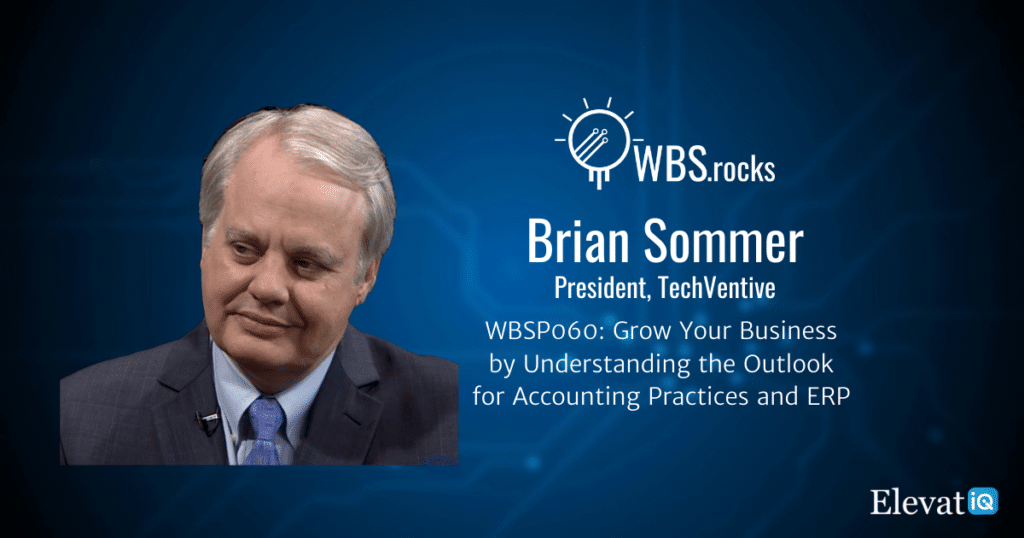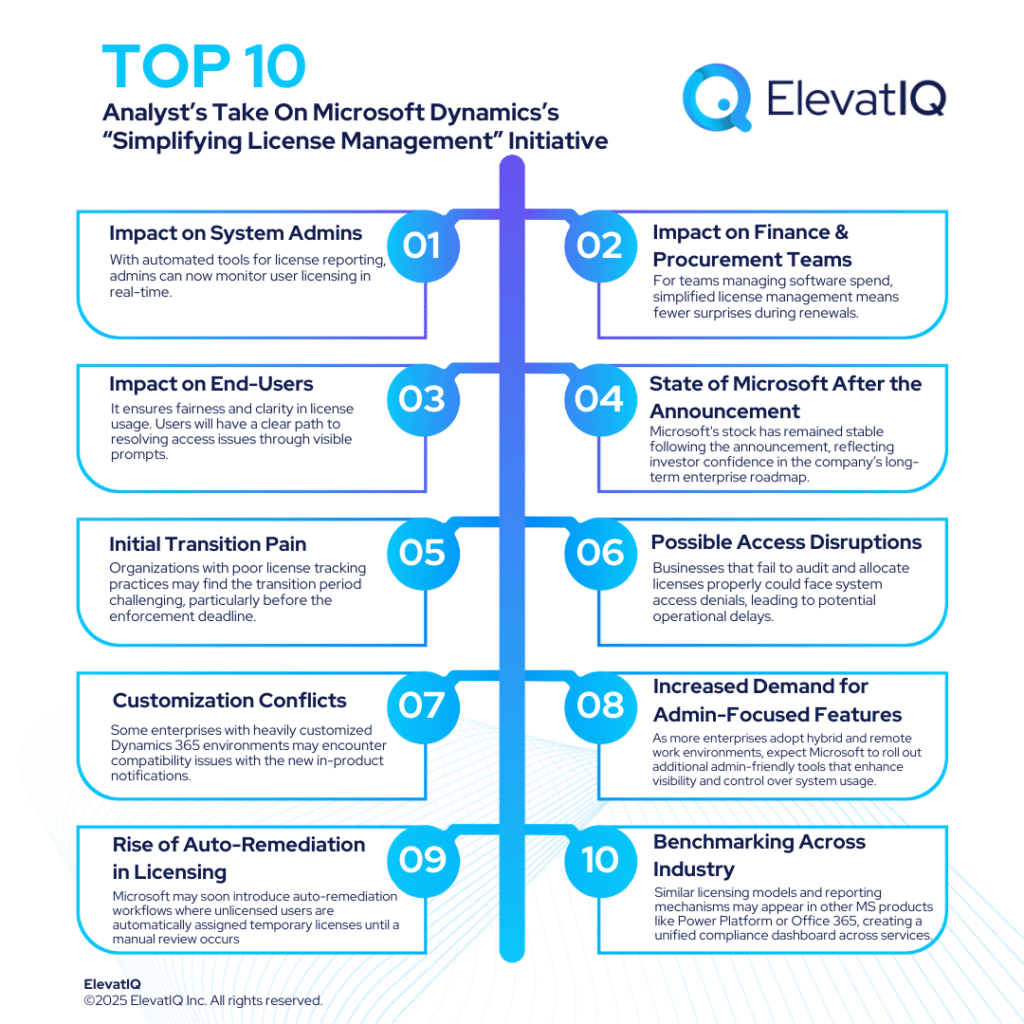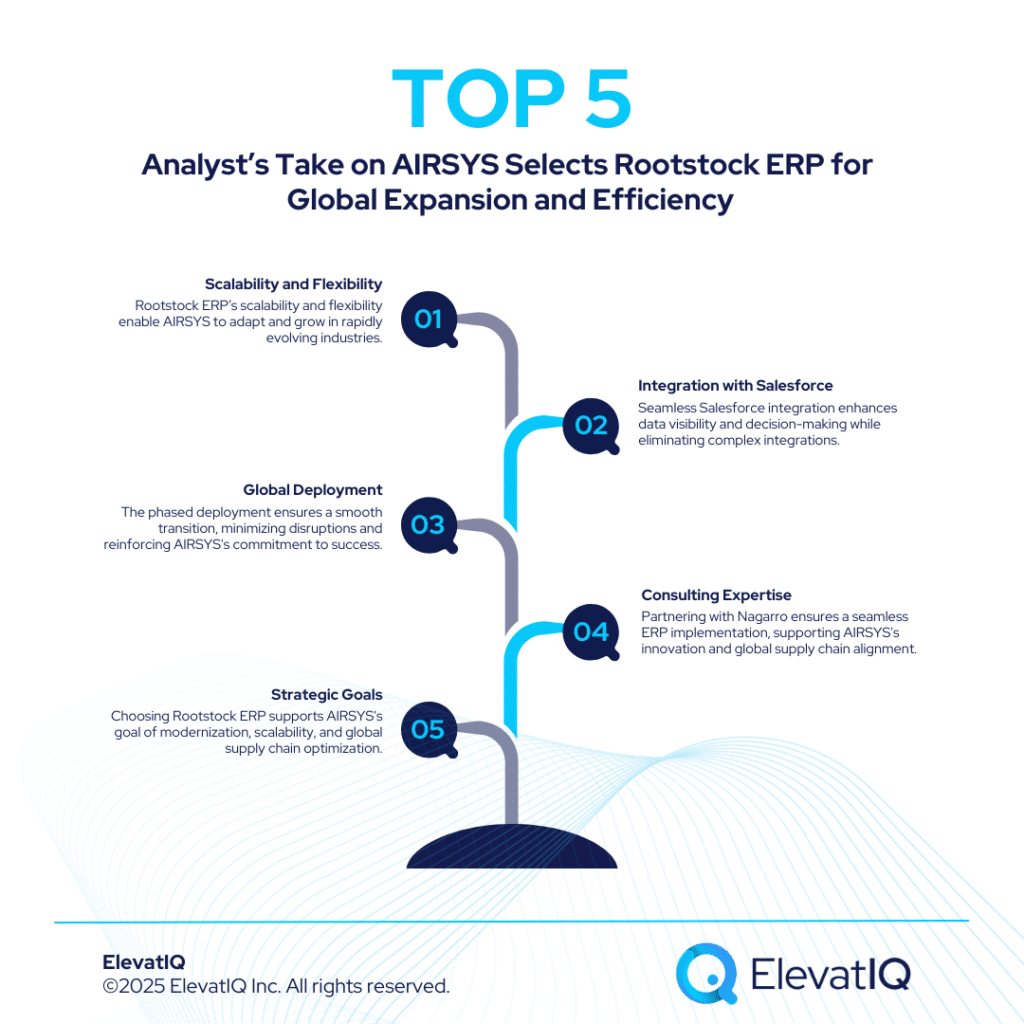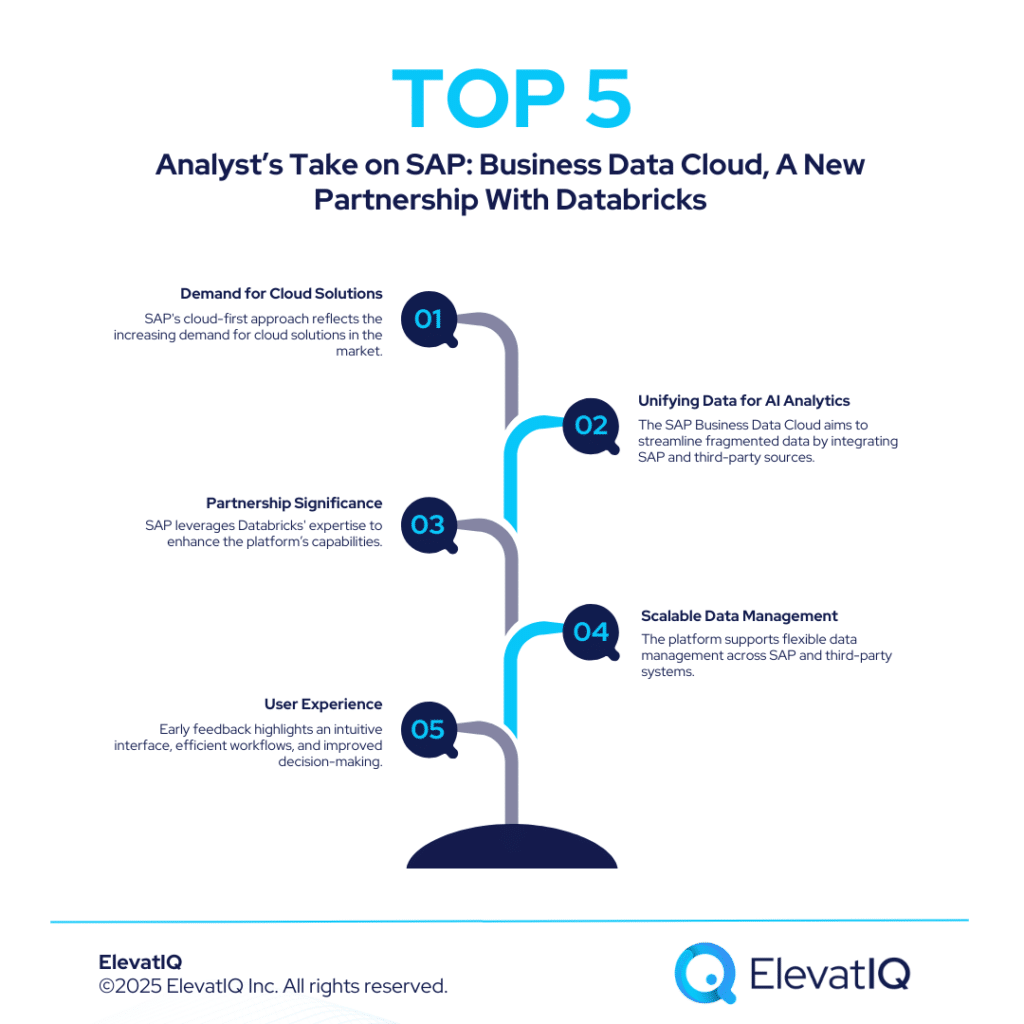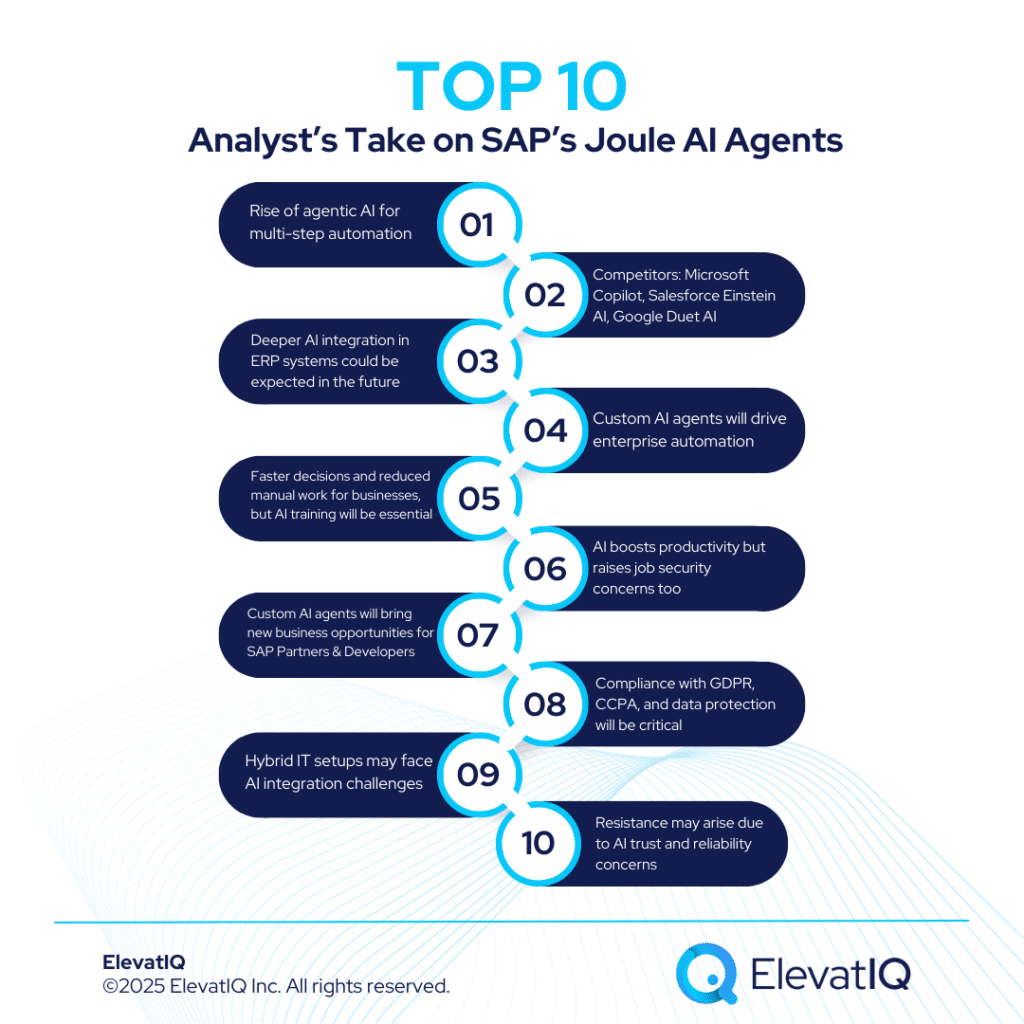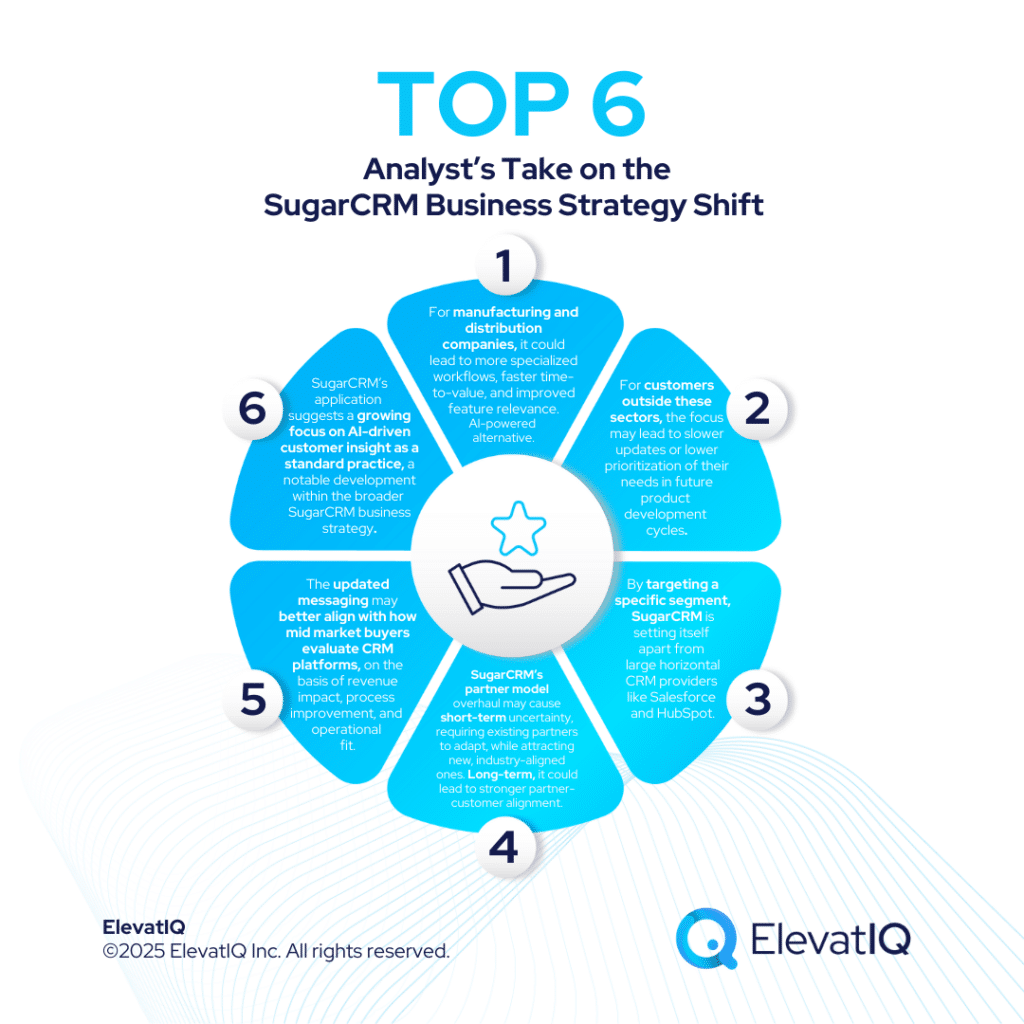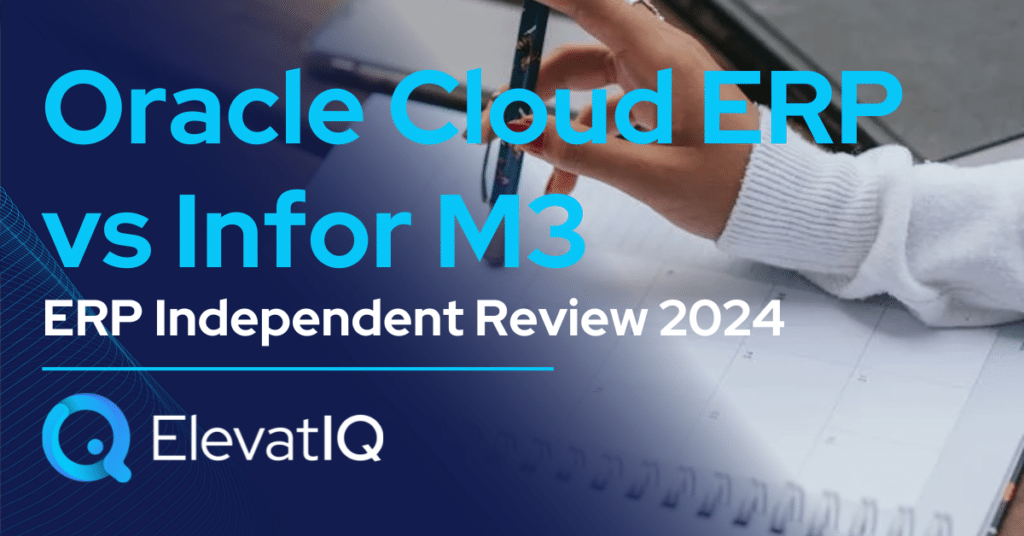Last Updated on November 27, 2023 by Sam Gupta
In this episode, we have our guest Brian Sommer, who discusses why legacy ERP systems and artificial accounting practices need to change with time. He also shares several ERP Expert Witness and litigation stories in antitrust cases. Finally, he shares several nuances and stories of how businesses must be approaching an ERP or digital transformation initiative and why it is crucial to understand contractual obligations.
Chapter Markers
- [0:19] Intro
- [3:19] Personal journey and current focus
- [4:07] Perspective on growth
- [5:47] Brian’s Diginomnica journey
- [9:23] The ERP expert witness cases and ERP litigation
- [14:36] The nuances of ERP contracts
- [18:36] The evolution of accounting periods and the idea of continuous close
- [24:19] The implications of inaccurate product costing
- [28:58] The underestimation of efforts with ERP implementation
- [30:58] Closing thoughts
- [33:38] Outro
Key Takeaways
- A lot of clients spend an incredible amount of time and energy doing those software selections, yet, then they go tell somebody in their in-house counsel group, okay, we’ve picked the package now go deal with the contract. And actually, that’s a mistake. They should have been doing the two things together. And they never should announce who’s going to get the business, because there’s a lot of stuff you got to watch out for in contracts.
- You might think that you’re buying a subscription, and you are, but in addition to that, they’re also going to charge you extra money for every scanned document that comes into the system. They want to charge you extra for every connection you have to a CRM system that isn’t part of that vendor’s package. And so on.
- Most clients are stunned to realize that a software contract even though it’s priced. This is as a subscription. It generally goes one way up. It never goes down in price unless you really beat up the vendor pretty good to get the right kind of mechanism in there.
- Don’t throw out your old software until you absolutely know the new software is working well. You need to have a plan B, just in case the new technology isn’t going to cut it.

Subscribe and Review
Apple | Spotify | Stitcher | Google Podcasts | Deezer | Player FM | Castbox
About Brian
Enterprise software industry analyst Brian Sommer covers the ERP, finance, and HR sectors for Diginomica and other publications. Brian began his career running Accenture’s Global Software Intelligence organization where he advised hundreds of clients on software selection and shared services initiatives. He continued to lead digital transformation and ERP software selection/negotiation projects and is sought out as an expert witness or consultant in major ERP and antitrust cases.
And he has won Software Advice’s Authority Award – ERP Expert and numerous ERP Writers’ Awards. He was recently named a 2019 & 2020 Top 100 HR Tech Influencer by Human Resource Executive magazine. Brian has also published books on digital transformation, software selections and technology negotiations.
Resources
Full Transcript
Brian Sommer 0:00
These toll charges can get quite significant. And one deal I was reviewing the other day, the subscription was going to be because they were buying everything this vendor had was going to be about $100,000 a year, but the toll charges were going to be around $800,000.
Intro 0:19
Growing a business requires a holistic approach that extends beyond sales and marketing. This approach needs alignment among people, processes, and technologies. So if you’re a business owner, operations, or finance leader looking to learn growth strategies from your peers and competitors, you’re tuned into the right podcast. Welcome to the WBS podcast, where scalable growth using business systems is our number one priority. Now, here is your host, Sam Gupta.
Sam Gupta 0:55
Here everyone, welcome back to another episode of the WBS podcast. I’m Sam Gupta, your host, and principal consultant at digital transformation consulting firm ElevatIQ.
ERP contracts are inherently crafty. If you don’t have experience buying an ERP, you might want to get your contracts reviewed with a consultant who has several years of experience reviewing ERP contracts. You might think of purchasing an ERP as a subscription package. But any ERP system implementation has more nuances in the form of data ownership, ongoing support, and bandwidth usage. So you might want to understand these critical details before you are locked in a contract and might end up paying eight times what you had forecasted.
In today’s episode, we have our guest Brian Sommer, who discusses why legacy ERP systems and artificial accounting practices need to change with time. He also shares several litigation stories related to his experience being an expert witness. Finally, he shares several nuances and stories of how businesses must be approaching an ERP or digital transformation initiative and why it is crucial to understand contractual obligations. Let me introduce Brian to you.
Sam Gupta 2:11
Enterprise software industry analyst Brian Sommer covers the ERP finance and HR sectors for Diginomica and other publications. Brian began his career running Accenture’s global software intelligence organization, where he advised hundreds of software selection and shared services initiatives.
He continued to lead digital transformation and ERP software selection or negotiation projects and is sought out as an expert witness or consultant in major ERP and antitrust cases. Brian has won the software advises authority award ERP expert and numerous ERP writers award. He has recently been named a 2019 and 2020 Top 100 HR Tech influencer by the human resources executive magazine. Brian has also published books on digital transformation, software selections, and technology negotiations.
With that, let’s get to the conversation.
Hey, welcome to the show, Brian.
Brian Sommer 3:15
Well, good to be here. Or, as I’m more apt to say Howdy.
Sam Gupta 3:19
Howdy Brian, you spent a lot of time in Texas, and I’m fairly used to that. So thank you so much once again for your time. Do you want to start with your personal story and current focus, Brian?
Brian Sommer 3:29
I’m just one of these simple country boys who ended up covering the Big Bad world of ERP technology for a long time. And before that, I was a consulting person. I did 18 years with the firm Accenture. And I even ran their global software intelligence function for a decade when I was there.
So I had about 65 buy-side analysts, and we advised people what to buy and what to run away from when it came to big-ticket software. It’s how I ended up traveling all over the world, to put it, to put it mildly. Anyway, it’s been a great ride so far.
Sam Gupta 4:07
And the software selection stories are always fun to discuss because there’s a lot of drama associated with them. I’m super excited to discuss those. But before we do that, we have one of the central questions that we ask all of our guests, and that is going to be your perspective on business growth. Brian, what does growth mean to you?
Brian Sommer 4:25
I think growth means getting uncomfortable and that things keep changing, and people hate change. And I learned something years ago when my kids were newborns. I was reading a child book, and it said something that I’ve never forgotten.
It said that if you’re the parent that always takes your child to like Saturday morning soccer games, and you switch off with your partner that upsets children, they crave consistency. They like a routine and what I’ve learned with clients and with company employees. He says that they’re nothing more than older children. They hate change too.
And that’s one thing about the ERP projects when you’re trying to drive that kind of change in there, it can be very uncomfortable, and growth will trigger change, it has too many of your listeners have probably been if they’ve been at a company for any period of time, they’ve probably realized their firm has outgrown, maybe their starter systems or their older systems have gotten a little long in the tooth and are no longer technically relevant.
And in this pandemic, they can’t grow and scale their firm if they have solutions that are still tethered to an on-premise server or computer center. So growth is something I actually enjoy. I love to see and learn new and different things. But I realize not everybody’s that way.
Sam Gupta 5:47
Okay, amazing. And I want to take a little bit deeper into your background. So obviously running this division at Accenture to then writing for Diginomica. And obviously, Diginomica is a very trusted brand. I like your insight a lot. You guys keep it super real. So how did you start on the journey of Diginomica? What is your involvement there recently? A Guest writer or contributor or a partner there? Can you tell us a little bit about that?
Brian Sommer 6:15
So Diginomica was actually founded by three or four folks that I know well, and I’m probably gonna miss one. So guys, just don’t shoot me for this. But Jon Reed, Dennis Khaled, Phil Wainwright. And I think Stuart might be the fourth one right there that was one of the original founders.
I knew Dennis all the way back to about the mid-90s when he was writing for a company called Computers and Finance. I don’t have any ownership interest in that in diginomica. But I’ve been one of their longer-form writers, and I specialize in what’s called long-form pieces I write for CXO. That’s who my kind of target reader generally is, like a CEO or CFO.
And my stuff is basically built around what I learned in running client projects. And what you may not know is, every year, I’m involved in big software selections, software negotiations. I even get pulled in occasionally for some very notable pieces of litigation that take place in the ERP space.
So it’s that background and dealing with clients in the real world. That’s what shapes and forms my content on what I put out a Diginomica also do two pieces for other publications as well. But to me, the writing is a rounding error in my financial statement or books every year with the company. I mostly do it because it’s a cool thing to do. And it’s one way to kind of give back to the community in whether you agree with me or not, at least, hopefully, you get a little entertainment value and some education out of what I put together.
Sam Gupta 7:56
Okay, so tell me a little bit more about your writing interest. You started this because you wanted to build your thought leadership in the market? Or was it more from the subject matter expertise of the consulting firm that you were building? What was the primary motivation for writing this content, and what do you aim to get out of it?
Brian Sommer 8:14
So I always believed that everyone has a kind of responsibility to themselves to create their own brand. And before Tom Peters, the management guru had written an article for Fast Company in the 90s. It was called the brand called you.
Yeah, before he pinned that, I was pushing my own people to basically make names for themselves to become, if you will, a noted subject matter expert or star, if you will, in a given area, take it to find it, own it. And yeah, I think it’s important for people to build and create their own brand because you never know what’s going to happen with your employer.
They could get acquired one day. Your job could be made redundant. Any want to be able to pick up your career somewhere else, just like that, you know, the snap of a finger, you want to be able to have the most portable and powerful career you possibly can. And one way to do that is to create a brand around yourself through writing, public speaking, what have you, you need to do those kinds of things. So people recognize you for the expertise that you possess. And that’s what it’s all about
Sam Gupta 9:23
So let’s go back to your litigation. And I think you know. You are going to have tons and tons of stories there. So how did you get involved with some of these litigation stories? And this is something that nobody wants to see in the ERP journey.
But this happens more often than we want to see it. So how did you start your litigation journey? What is your involvement there? How often do you get involved? And what is the scope of work that you typically put into these projects?
Brian Sommer 9:52
Well, I’m under several protection orders on some prior litigation deals, and I can’t talk about them, but I will just generally tell you the following. This just sounds odd to say this, but I got my first subpoena that went out was back in 1992. It was based on the fact that I published a massive guide to the sort of like everything everyone to know about human resources software.
One to three tech firms were suing each other over theft to trade secrets and those kinds of issues. And one of them decided that I’d be the perfect person to basically point out that they didn’t steal anything. It was just the way all these products work. Yeah, I have that framed in my office, believe it or not, that subpoena lawyers generally come and find me.
Brian Sommer 10:40
And they find me because they read stuff about what I’ve written. And they think, well, this guy might know what’s going on. I’ve also sometimes some lawyers have, some lawyers will look through the case files of other similar cases and decide, I gotta, you know, we at least need to call this guy, if anything, just to be a consultant on our case, I’ve been pulled into any trust matters, there’s, and then I get the calls, the more frequent thing around is.
Believe it or not, an ERP implementation has gone off the rails, and somebody is upset the customers upset because either they didn’t get the benefits they hoped for, or they’re in dispute with the vendor. And it’s gotten all tied up in knots, and it’s in a courtroom. And then once somebody come and review it,
Sam Gupta 11:31
okay, so let’s talk about some of the stories that were sort of shocking for you in terms of the discovery that you made as part of these engagements from the litigation perspective, right? So do you have any stories where you didn’t expect, and you found something that was eye-opening for you?
Brian Sommer 11:46
Well, okay, number one would be because of a litigation case. I’ve probably read over 10,000 software contracts. And my eyes are, it’s made me have to wear glasses. Now, I think a lot of clients spend an incredible amount of time and energy doing those software selections, yet, then they go tell somebody in there in House Counsel group, okay, we’ve picked the package now go deal with the contract.
And actually, that’s a mistake. They should have been doing the two things together. And they never should announce, you know, who’s going to get the business, because there’s a lot of stuff you got to watch out for in contracts, some of the biggest areas of concern right now are, and this is even down to products that are sold even to small and medium-sized businesses. Some of the contracts have these toll charges in them.
Brian Sommer 12:39
So you think you’re buying a subscription, and you are, but in addition to that, they’re also going to charge you extra money for every scanned document that comes into the system. They want to charge you extra for every connection you have to a CRM system that isn’t part of that vendor’s package.
And in fact, the CRM system may charge you for any information they send to your accounting system, for example. And these toll charges can get quite significant. In one deal I was reviewing the other day, the subscription was going to be because they were buying everything this vendor and was going to be about $100,000 a year.
Brian Sommer 13:20
But the toll charges were going to be around $800,000 a year. And the client didn’t realize that until or the company didn’t realize they weren’t a client of mine yet until they’d already decided we were going to buy that particular piece of software.
So that’s one of the big aha is the big surprises that are out there. Another one is most clients are stunned to realize that a software contract even though it’s priced. This is as a subscription. It generally goes one way up. It never goes down in price unless you really beat up the vendor pretty good to get the right kind of mechanism in there.
And where they really came to be important is last spring, when the pandemic hit, these companies were closing and laying off workers. They were stunned to find vendors actually raising prices, not reducing prices. And if you don’t understand all the weird math in it, then go get some help. I’m not bashing right now. I’m not saying don’t call me, but somebody out there who is going to help you and be your zealous advocate.
Sam Gupta 14:36
So here’s my problem with that approach, or maybe the gap in understanding I should call it as opposed to the problem. So let’s say if I’m the customer, Brian, and let’s see if I sign the contract. Obviously, these contracts would be extremely crafty, as you know, right? And they could be tricky to understand for a customer who has never bought, let’s say, an IT system or even the fast system or newer clothes.
System for them, it is a subscription model, they are thinking that it’s just going to be buying like QuickBooks, and then I never have to pay extra, the only time I have to pay extra is when I’m going to increase the number of seats in my contract.
So obviously, these things are very well listed in the contract. They are listed in a very crafty manner so that the people who are reading it for the first time, it’s sort of unethical. In my opinion, it’s not very ethical. But if you look at it purely from the legal perspective, I don’t know if anything can be challenged in court.
So what are these customers trying to accomplish as part of these litigations? Do they get anything out of it? Because obviously, it’s part of the contract, you sort of knew what you were getting. So what do customers get out of these litigation projects? Or are they simply wasting their money?
Brian Sommer 15:46
No, I’m not saying no. There have been some, some new ones, some nice settlements. But here’s the deal, you got to ask yourself, if you get all the way to the point where you’re going to sue a software company, you’re gonna ask what it is, you really want that some people what they really want is they wanted the software to be installed and to work as described.
Some companies, on the other hand, want to get a big financial payout? Yeah. And you got to decide where am I really on this. And vendors might actually be a little bit more willing to work with you to help you get the thing actually installed and working correctly if that’s what you want.
Brian Sommer 16:32
A lot of people, though, by the time they get to litigation, things have gotten so adversarial between the two organizations that the company doesn’t want to go there. And then there’s a third outcome, sometimes when a system fails so spectacularly that it almost brings down the company.
And there have been cases where an ERP system failed during a critical phase of production, and it caused massive economic damage to the company. That’s going to be one that the lawyer is going to have a good time with. I was involved in one case, by the way, where the legal firm fees from both sides approached a total of about $300 million.
So it can get pricey. Yeah, so you got to ask yourself, why am I doing this? The other thing I tell clients is you don’t throw out your old software until you absolutely know the new software is working well. You need to have a plan B, just in case the new technology isn’t going to cut it.
And finally, there’s always this ambiguity in these cases, where is it the fault of the customer, the vendor, or a third party like an implementer, and everybody’s going to be pointing fingers at each other? Back, it’s really hard to figure out who’s screwed up,
Sam Gupta 17:47
If everybody sort of knew in the beginning about where the problem is going to be, then probably we would not have a problem in there are a lot of gray areas, especially when it comes to software implementation.
It’s hard, and the more clients embrace that, it is going to be a hard journey. I think that could ease the pain a bit. So okay, so now let’s go back to your article. And I found it super fascinating. Just because I have questioned this myself, all in terms of the accounting principles, the way, they are designed, if there is anything that we can do from the user experience perspective or from the company experience perspective. And then, as I grew in my career, over time, I sort of started embracing the standards that are there just because they provide the necessary control.
Sam Gupta 18:36
But you raised one of the points which resonated with me a lot, and which is going to be this notion of the accounting period and the continuous close.
So why do you believe that the continuous close is feasible in the real world? Obviously, accounting periods are there for a reason. If you start closing on a daily basis, obviously, there’s going to be a lot more churn than closing it on, let’s say, on a monthly basis.
So why do you believe that this is practically feasible to be able to do continuous close?
Brian Sommer 19:02
Well, believe it or not, banks, financial institutions have been closing their books every day for ages. They have to settle up and know exactly what’s the value of their investments and so forth so that they can make sure that they have the business continuity, the cash flow, and everything else they’re supposed to have.
So in a way, it’s not daily clothes is not necessarily a new idea here. And I’m not advocating. I’m saying, Let’s start with what’s happened with technology, technology that existed in the 1950s-60s, all the way through, even though the early part of the 90s.
And a little bit beyond that. It was expensive. It was constrained. And it was a little difficult to use, but what it was mostly focused on was automating a manual task. That’s the purpose of it. Most of the big software packages were to take something you did manually and now make it available in an automated fashion and store it on a computer.
Brian Sommer 20:09
What people didn’t do is they didn’t change how their processes like we, you know, we’re doing payroll and a lot of companies every week or every two weeks or twice a month, something like that, that’s been going on for years.
Same thing with, we close the books, either every once every calendar month or on a quarterly basis, or what have you. And that’s been going on and on. And the way people did allocations for cost accounting, it’s been the kind of the same way, what’s happened now those we have such improved communication speeds, we’ve reduced the cost of data storage tremendously and improved how much storage is available, computing costs have plummeted. I have more power. I’m a form factor with more power in my apple smartphone than I used to have. And many of the big mainframes I worked on in the 1980s for clients.
Brian Sommer 21:05
So we’ve got all this new power, new places to put data and everything else, all new kinds of information are being generated through sensors and IoT devices and other things.
And yet, no one’s thought about really, why are we doing some of these accounting activities? This the way we’ve always done them? Should we update those? And the answer is absolutely. And I’ll give me a great example. There’s a company that makes very heavy products they take to think of food product that comes in by the tons.
Yeah. And when you make it, why are they only looking at their water, electric, natural gas, and other bills on a monthly basis? And then they allocate the cost of that, across all the different products and batches of product that they make? Will they do that because that’s the way they always did it years ago?
And that was because they had no ability in their own systems to capture 1000s of finite bits and pieces of data they didn’t. Now you have low-cost sensors, readers, everything else. They can measure at the beginning and end of every step in the production process exactly how much electricity in raw material or whatever is used at every step along the way.
So they know and can know what is their cost of producing a ton of product or a batch or what it costs to film a specific customer’s order. And where that matters.
Brian Sommer 22:34
I wrote about this in this article he referenced is there are some industries, an old client of mine makes metal alloys, and they located one of their facilities near a hydroelectric dam. That’s because if they melt metal at night. They get the electricity from next to nothing.
Those batches are extremely profitable for them to make at that location at that time, you know, in the middle of the night, because the incremental amount of labor costs are paying a nightshift premium is nothing compared to the 1000s of kilowatt-hours of electricity, they’re consuming melting metal and 20-ton batches. And they get those savings.
Brian Sommer 23:12
And it’s important to know that instead of using some kind of average cost over the month, or standard cost, which blurs profitability and makes it hard to know, are making money on these orders or not. And that’s just the first part of it. Because if you now know what the actual costs are for every batch in order, and so forth, and you can add to that the revenue you’re bringing in infinite levels.
Now you can get true margin or profitability by customer or by order. And you can finally figure out, are we making money at this plant or another plant? Should we tell some customers we need to renegotiate the contracts because we’re not making money on their orders? Or do we readjust where we make products for specific customers to move it to plants, where we can make it and ship it to the customer for a lot less cost?
Now that we have this precision in our data, what we have now is the opportunity to use more precise data to better determine the future of our company and our profitability for shareholders.
Sam Gupta 24:19
Okay, amazing. So when we look at the product costs, in my opinion, especially in the SMB space that I see Brian, product costing it’s so important, and obviously you are talking about making it so precise that you really know what your product is costing and what your margins are, and whether you are competitive in the market and whether you are not losing just because you don’t know what your product costs.
So this is the traditional model where you are simply going to allocate some of these costs, and you have some rough ballpark that maybe it costs as much. But in some of the cases, some of the SMB manufacturers didn’t want to even have protocols just because we don’t have a system.
So what would he say to that, and if anybody is not using, let’s see here, the system, it’s very hard for them to be able to track product costs. And what they are going to do is they are going to use for more generalized model for their product costing, and they have no clue what their product cost is, and whether they are competitive with that they can probably provide more discount, and it’s a much bigger problem, then I can think of what would he say today,
Brian Sommer 25:20
I’d say it is a very big problem. And I would tell you that there’s a couple of subtleties to this. Let’s go through it. When I walk through a manufacturing operation, and I see whiteboards, paper, clipboards, spreadsheets, whatever, I just start to cringe.
And the reason is, I know this is a company that will not scale. Yes, because if they start taking on more orders, and they don’t know, if they’re even making money on the ones they have, I guarantee you, they’re probably losing money on some of them. And the losses will only get bigger because they don’t know what they’re doing yet.
Brian Sommer 25:57
Now, in contrast, those same business owners and operators, they will tell me that they just know if they’re making money or not, I’m like really, and then they’ll tell me that I don’t understand their business because it’s really more of an almost like a craft or artists know, kind of business. And they have to be.
It’s more important that they’re close to the product and how it’s being made, like a fine wine or cheese. And I understand that I’m not devaluing the role of someone who’s like a master chef or something that really just has a knack for what’s going on. That’s true. But even a great restaurant, they know what they’re making on every ticket, they know the profitability of a menu item, they know what the costs of the ingredients are, and every one of these things, it doesn’t have to be an all-consuming kind of thing, it just means that you actually took the time to figure that stuff out to make sure you’re not as a colleague calls it, you’re not feeding the dogs, you want to make sure you’re putting money into the products that are growing and making the company a success.
Brian Sommer 27:04
But this thing about, I want to caution your listeners that if there’s one thing you remember about our conversation today is that nostalgia is not a strategy. You can put that on a bumper sticker if you want. And just remember that because a lot of people go like but Brian, that’s not the way great-grandpa set up the company in 1907.
Or, but Brian, this is the way we’ve always done it. When I hear those kinds of defenses, those are excuses as to why they don’t want to change. And there are also reasons why the company can’t scale. Let me give you an anecdote. There was a great mid-sized company. And I knew the founder was my best friend until he sadly passed away at a young age.
But he built this nice big company. I had to help him transition it to his brother-in-law to run. And I took the brother-in-law’s side. I told him that my good friend had a way of running the company.
Brian Sommer 28:02
That was his way of running it. but it wasn’t scalable. And I go, you need to take a hard look. And like, do you have the right team? Do you have the right people? Do you have the right systems? And you need to do what you believe is the right way to run this company? Don’t try and do it.
And second, guess the way your predecessor would have done it? Yeah. And I’m glad he took that to heart because, amazingly enough, within 14 months, the company was two and a half times bigger than what it was original. There is a deal about are you running a lifestyle business? That’s why I ask a lot of these SMB companies, or you are trying to run a business that’s going to create outsized value huge numbers of jobs and careers for people.
Are you going to be a force in your industry? It is that if you want to do that, then you have to think about how do I grow a company to scale? Not how do I stay put where I’m at and stuck in one spot?
Sam Gupta 28:58
Okay, so there are two conflicting ideas that we typically see in the market. And I don’t know what your experience has been. So there is this notion that obviously, sometimes, these companies, and especially the lifestyle businesses, don’t want to change.
Let’s say if they decide to change, there is this notion that technology is sort of easy. I’m actually going to bring a story from yesterday, and I was on a customer call. And there’s nothing against that. I think technical or business team, it’s just the understanding the gap and understanding in realizing what is required in creating these technology initiatives.
So these guys were actually trying to create a new site in a South American country, and they had no idea basically how to do it. They had an ERP system, they had two sites, and they simply wanted to spin-off one more and just create an additional site for them.
For the business community, it’s almost like clicking a bunch of buttons and creating another site in this. Let’s get rolling and do some business. But that’s where you need to do a lot more planning. So what would you say to this story?
Brian Sommer 30:02
I know of three companies that were SMBs and started to hit kind of hockey stick growth. And instead of putting in better systems of controls and what have you, they tried to keep going with what has served them in the past.
And in those three firms, fraud showed up in a material way. Okay, you know, and so it’s great that you want to grow, but you need to grow in a very smart way. And you’re going to find that sometimes when you really start growing, the temptation is to let your eye off the ball.
You’re not watching some of the aspects of your business as close as you can. And if you had some poor or underpowered systems in the past, the cracks in the holes are going to be so big that any kind of person with a fraud kind of background is going to find a way to exploit it. So be very careful.
Sam Gupta 30:58
Okay, amazing. That’s it for today. Brian, do you have any last-minute closing thoughts, by any chance?
Brian Sommer 31:03
Yes, I do want to tell folks that if you’re going to seriously looking at implementing any kind of new software for your firm, and probably like in the ERP package, you’re going to have to also look at who’s going to help you with the implementation, how you want to implement it. If I could give one piece of advice to folks, a lot of vendors out there make a lot of noise about having these rapid implementation methodologies.
It sounds great. Why because finally, they’re going to come up with a low-cost way to implement software, and the customer is going to be the beneficiary that it’s not going to, you know, I’m not gonna get surprised.
And so I admire the idea. But let me tell you why you probably don’t want to do that, in some cases, when we talked earlier on this call about the need to think about time in a different way. And having more precise data and more different kinds of statistical values that go into your accounting systems.
Brian Sommer 32:04
Now, from these sensor and meters and other generated kinds of inputs, you need to rethink applications like cost accounting, inventory, accounting itself. The fast implementation method basically says, take the data out of the old software and map it to the new software.
That doesn’t say anything about re-engineering anything. You’re going to end up with the same thing just in a slightly newer, sexier package. Yep. But it doesn’t fundamentally change anything about how you’re going to run your company. So what you need to find out, folks, is you need to find a balance, if you will, with a rapid known cost implementation that balances out with, are we pushing our company far enough and hard enough to really radically reimagine what business should be for us for the long term.
Remember this, folks, that the typical ERP package is installed at companies longer than most people’s marriages last. And I know that’s a somber thought to ponder here at the end of this call, but that’s what you got to remember folks. So if you’re going to have it in longer than you’ve been married, then you might want to think about did we pick the right product? And are we putting it in the right way?
Sam Gupta 33:22
Yeah, I could not agree more, Brian, and my personal takeaway from this conversation is going to be nostalgia is not a strategy. So better think about it. On that note, I want to thank you for your time. This has been a powerful conversation.
Brian Sommer 33:35
Thank you, Sam. Thanks, everybody, for listening in. I appreciate it.
Sam Gupta 33:38
I cannot thank our guests enough for coming on the show for sharing their knowledge and journey. I always pick up learnings from our guests, and hopefully, you learned something new today. If you want to learn more about Brian contact me at contact@techventive.net or follow him on Twitter or LinkedIn. Links and more information will also be available in the show notes.
If anything in this podcast resonated with you and your business, you might want to check out our latest episodes, including the interview with Bob Evans, who discusses what SMB customers need to know about cloud infrastructure providers. Also, the interview with Laurie McCabe, who discusses how technology can help struggling businesses be more efficient during downturns.
Also, don’t forget to subscribe and spread the word among folks with similar backgrounds. If you have any questions or comments about the show, please review and rate us on your favorite podcasting platform or DM me on any social channels. I’ll try my best to respond personally and make sure you get help. Thank you, and I hope to catch you on the next episode of The WBS podcast.
Outro 34:46
Thank you for listening to another episode of the WBS podcast. Be sure to subscribe on your favorite podcasting platform, so you never miss an episode and for more information on growth strategies for SMBs using ERP and digital transformation, check out our community at wbs.rocks. We’ll see you next time.


